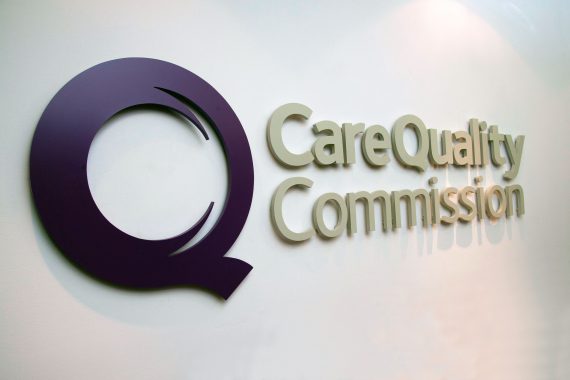The CQC has decided to pause re-inspections of good and outstanding GP practices for the month of January.
A CQC spokesperson told Pulse that it expects the measure to affect around 120 GP practice inspections.
It is also pausing inspections of GP out-of-hours services, urgent care centres, NHS 111 and hospital trusts with good and outstanding ratings.
The watchdog said this was in response to NHS providers having to cope with additional demand driven in part by a rise in respiratory illness and flu.
But they added that re-inspections of services rated requires improvement or inadequate will continue as scheduled, while inspection to follow up on concerns will be unaffected.
Announcing the move, CQC chief executive Sir David Behan said it comes as ‘the entire health and social care system is at full stretch’ and ‘now an increase in respiratory illness and flu has further intensified this pressure’.
He said: ‘To support the system as much as possible, we are rescheduling some routine inspections of services. This is to allow frontline staff and leaders to focus on continuing to ensure that people receive safe, high-quality care during this period of increased demand.’
And he added that it was ‘important to reiterate that these pressures do not originate with and are not restricted to emergency departments, or to NHS acute trusts’.
Dr Mark Sandford-Wood, BMA GP committee deputy chair, said: ‘It is right that the CQC has taken the decision to suspend inspections for the vast majority of GP practices and other parts of the NHS that have a good or outstanding rating.
‘This process is extremely time consuming and places an additional burden on staff and resources, a situation that we can ill afford when large parts of the health service are under unprecedented pressure from rising demand and workforce shortages this winter.’
But he added that ‘while this is an encouraging move, it does demonstrate the extent of the strain on the NHS, despite some short term initiatives lobbied for by the BMA to boost funding for GP practices over the Christmas period’.
‘We do need NHS England to demonstrate similar understanding and work with the BMA to agree measures to remove performance targets and other system measurements in order to release clinicians for front line clinical care for the benefit of patients,’ he said.
RCGP chair Professor Helen Stokes-Lampard said: ‘This will be music to the ears of hard-pressed GPs who are working flat out to care for patients in the face of winter pressures.
‘Now more than ever, it is critical that GPs’ valuable time is spent where it is needed most – on the frontline of patient care.
‘We thank the CQC for listening to the profession and taking today’s timely and sensible decision.’
The CQC said its normal inspection schedule is ‘expected to resume in February’ but will be ‘subject to review based on close monitoring of system performance’. It said inspections deferred during January would be ‘rescheduled as soon as possible’, with providers to be contacted directly about any changes to planned inspections.
The news comes as the Welsh Government last week took the decision to suspend QOF until the end of March in a bid to free up GP time amid winter pressures – a move the BMA has asked NHS England to follow.
The Government has argued that the NHS was more prepared than ever before for this winter, but a Pulse analysis into NHS winter funding streams revealed that practices were to receive virtually no help ahead of what it predicted could be an exceptionally harsh winter.
But Labour’s shadow health minister Justin Madders said the CQC’s decision was just ‘another example of Tory failure to suitably prepare our NHS for the predictable winter spike in demand’.
He said: ‘This incredibly serious decision must act as a wakeup call to a Government which remains in denial over the worst winter crisis on record.
‘Gaining a full picture of winter pressures is critically important and the CQC’s decision leaves a serious deficit of quality regulation.’
Pulse October survey
Take our July 2025 survey to potentially win £1.000 worth of tokens














